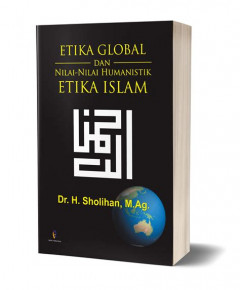Ditapis dengan

Precarious Coexistence in Maluku: Fear and Trauma in Post-Conflict Christian-…
This paper examines the precarious coexistence between Muslims and Christians in post-conflict Maluku, Indonesia. This ongoing reality in Maluku calls for a reassessment of the normative tendency in peace discourses, which expect peace to be elther ideal or impaired and tend not to be contextual in evaluating peace. To understand post-conflict coexistence better, we need to comprehend how emoti…
- Edisi
- Vol. 2 No. 1
- ISBN/ISSN
- 2829-3568
- Deskripsi Fisik
- 22 hlm, 28 cm
- Judul Seri
- -
- No. Panggil
- J 297.272 Mus

The Role of Muslim Rohingya Refugee Community-Based Organizations in Malaysia
The Rohingya refugee crisis has spurred the formation of community-based organizations (CBOs) among Muslim Rohingya refugees in Malaysia. This qualitative research explores the role and impact of these organizations within the refugee community. By employing a mixed-methods approach, including semi-structured interviews and content analysis, the study delves into the motivations, activities, ch…
- Edisi
- VOL. 3 NO. 1
- ISBN/ISSN
- 2829-3568
- Deskripsi Fisik
- 42 hlm, 28 cm
- Judul Seri
- -
- No. Panggil
- J 297.272 Mus

Social Media as a Space for Islamophobia: COVID and Social-Environment Crisis…
The COVID-19 pandemic has exposed an emergency of prejudice and savagery via social media by traditional 'patriots' in India. Meta, Twitter, and Instagram have turned into digital spaces full of deception about the pandemic. Hindu Instagram accounts such as @Hindu_secrets and @Hindu_he_hum have been unwavering and dedicated in spreading Islamophobic crusades by utilizing the COVID-19 pandemic. …
- Edisi
- Vol. 2 No. 1
- ISBN/ISSN
- 2829-3568
- Deskripsi Fisik
- 25 hlm, 28 cm
- Judul Seri
- -
- No. Panggil
- J 297.272 Mus

Why Do Religious Ideas Matter? The Multidimensionality of the Indonesian Publ…
In this paper, I challenge the claim of the universalistic public sphere by providing contextual complexity of the national and local public sphere in Indonesia. Within such complexity, this paper deliberates on how the local and national contexts in Indonesia shed light on the multidimensionality of the public sphere. This paper analyses the challenges of the digital divide in the local public…
- Edisi
- VOL. 3 NO. 1
- ISBN/ISSN
- 2829-3568
- Deskripsi Fisik
- 30 hlm, 28 cm
- Judul Seri
- -
- No. Panggil
- J 297.272 Mus

Far Away but Similar: Peaceful Coexistence Models in Indonesia and Syria
Successful social coexistence in countries with multiethnic and multireligious populations is rare. Scholars have used different approaches to find the theory that explains the key elements communities perform in reaching an environment of peaceful coexistence. In this regard, the previous theories give us a partial understanding of the successful peaceful existence amid rising conservatism in …
- Edisi
- VOL. 3 NO. 1
- ISBN/ISSN
- 2829-3568
- Deskripsi Fisik
- 24 hlm, 28 cm
- Judul Seri
- -
- No. Panggil
- J 297.272 Mus

"Hearts, Hands and Heads": Exploring the Relationship Between Disengagement a…
This article seeks to contribute to the debate about how disengagement functions and stands as a practical and effective counterterrorism methodology, and is based on detailed analysis of field work and project implementation in Indonesia. This article and the methodologies implemented and tested are grounded in previous research on disengagement of Indonesian jihadists and countering violent e…
- Edisi
- Vol. 2 No. 1
- ISBN/ISSN
- 2829-3568
- Deskripsi Fisik
- 20 hlm, 28 cm
- Judul Seri
- -
- No. Panggil
- J 297. 272 Mus

The Impact of Non-Violent Muslim Extremism: Reflections on Indonesia and Mala…
Numerous pieces of research have addressed the issue of terrorism and radicalism in Southeast Asia, and security studies are inundated with works covering its origin, function, and impact. However, this article argues that equal attention should be given to non-violent extremism and its impact on societies at the discursive level. By examining case studies from Indonesia and Malaysia, two Musli…
- Edisi
- Vol. 2 No. 1
- ISBN/ISSN
- 2829-3568
- Deskripsi Fisik
- 19 hlm, 28 cm
- Judul Seri
- -
- No. Panggil
- J 297.272 Mus

Konstruksi Tasawuf pada pendidikan modern: bangunan integrasi ideal pendidika…
- Edisi
- -
- ISBN/ISSN
- 978-623-8545-58-2
- Deskripsi Fisik
- xi, 221 hlm, 28 cm
- Judul Seri
- -
- No. Panggil
- U 297.5 Ami k
- Edisi
- -
- ISBN/ISSN
- 978-623-8545-58-2
- Deskripsi Fisik
- xi, 221 hlm, 28 cm
- Judul Seri
- -
- No. Panggil
- U 297.5 Ami k

Buku ajar falsafah kesatuan ilmu: paradigma keilmuan Universitas Islam Negeri…
- Edisi
- -
- ISBN/ISSN
- 978-623-96200-7-3
- Deskripsi Fisik
- xxi, 241 hlm, 24 cm
- Judul Seri
- -
- No. Panggil
- U 297.01 Sho b
- Edisi
- -
- ISBN/ISSN
- 978-623-96200-7-3
- Deskripsi Fisik
- xxi, 241 hlm, 24 cm
- Judul Seri
- -
- No. Panggil
- U 297.01 Sho b

Etika global dan nilai-nilai humanistik etika islam
- Edisi
- -
- ISBN/ISSN
- 978-623-5955-14-8
- Deskripsi Fisik
- xv, 143 hlm, 24 cm
- Judul Seri
- -
- No. Panggil
- U 297.5 Sho e
- Edisi
- -
- ISBN/ISSN
- 978-623-5955-14-8
- Deskripsi Fisik
- xv, 143 hlm, 24 cm
- Judul Seri
- -
- No. Panggil
- U 297.5 Sho e
 Karya Umum
Karya Umum  Filsafat
Filsafat  Agama
Agama  Ilmu-ilmu Sosial
Ilmu-ilmu Sosial  Bahasa
Bahasa  Ilmu-ilmu Murni
Ilmu-ilmu Murni  Ilmu-ilmu Terapan
Ilmu-ilmu Terapan  Kesenian, Hiburan, dan Olahraga
Kesenian, Hiburan, dan Olahraga  Kesusastraan
Kesusastraan  Geografi dan Sejarah
Geografi dan Sejarah